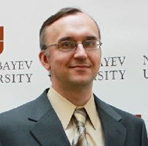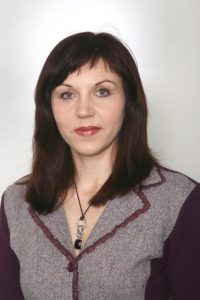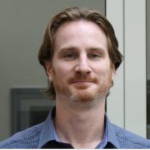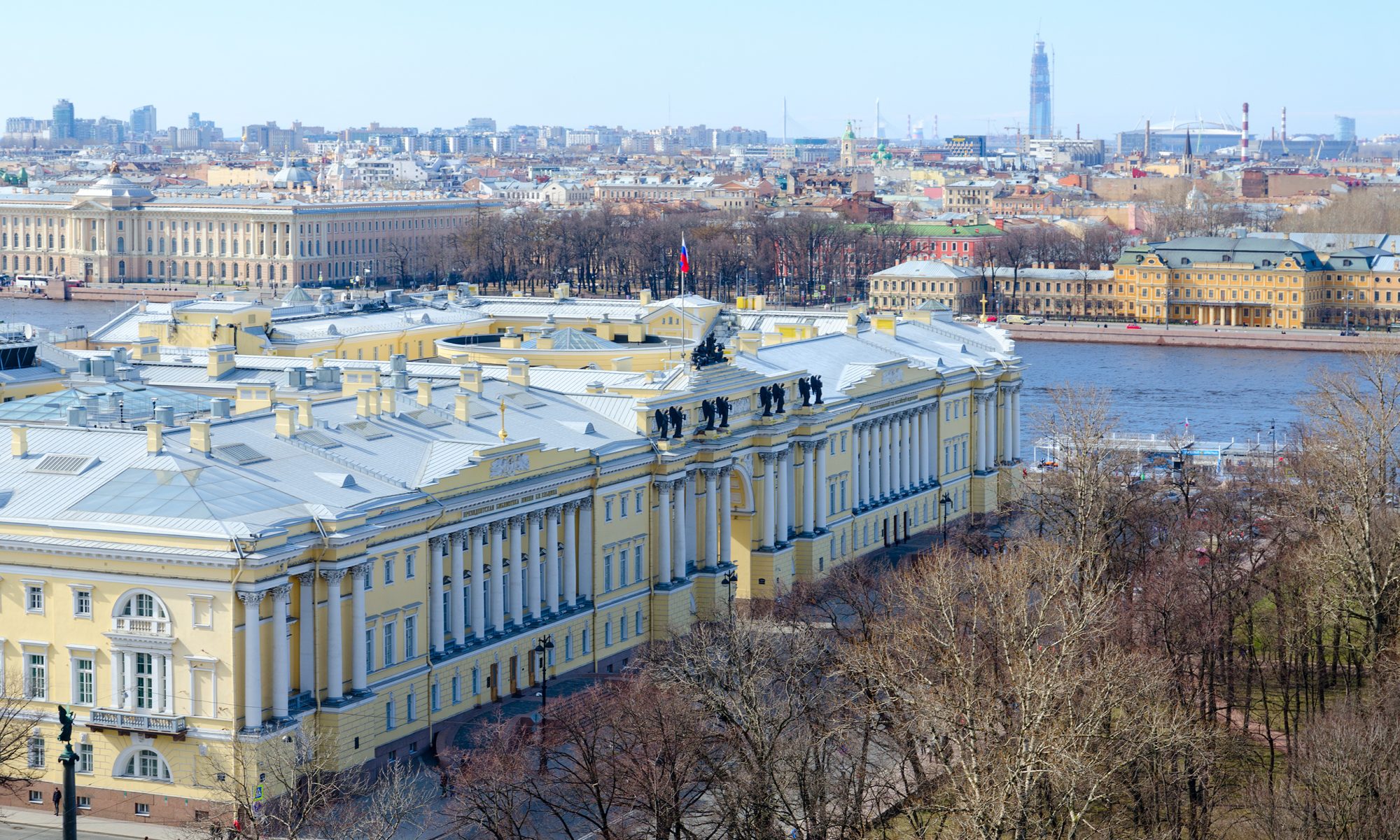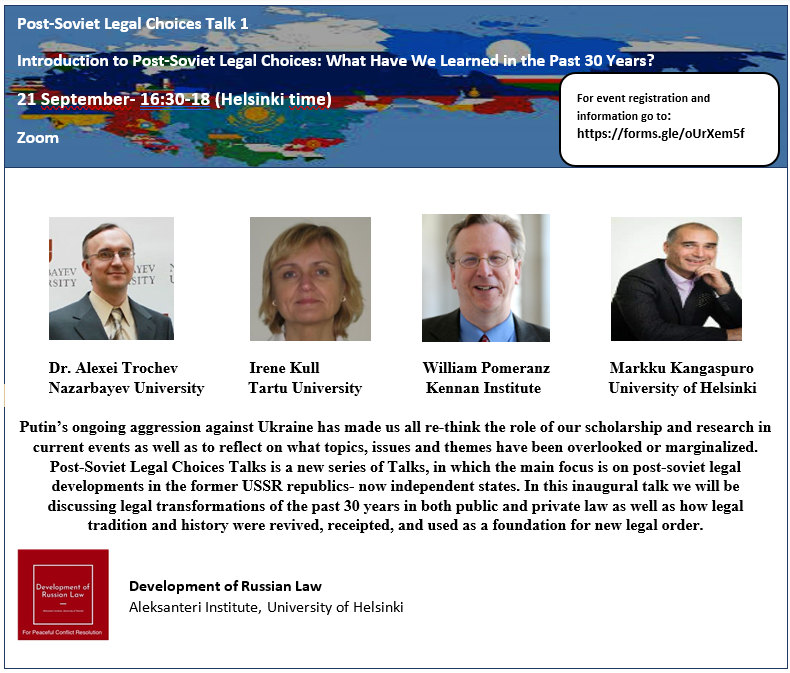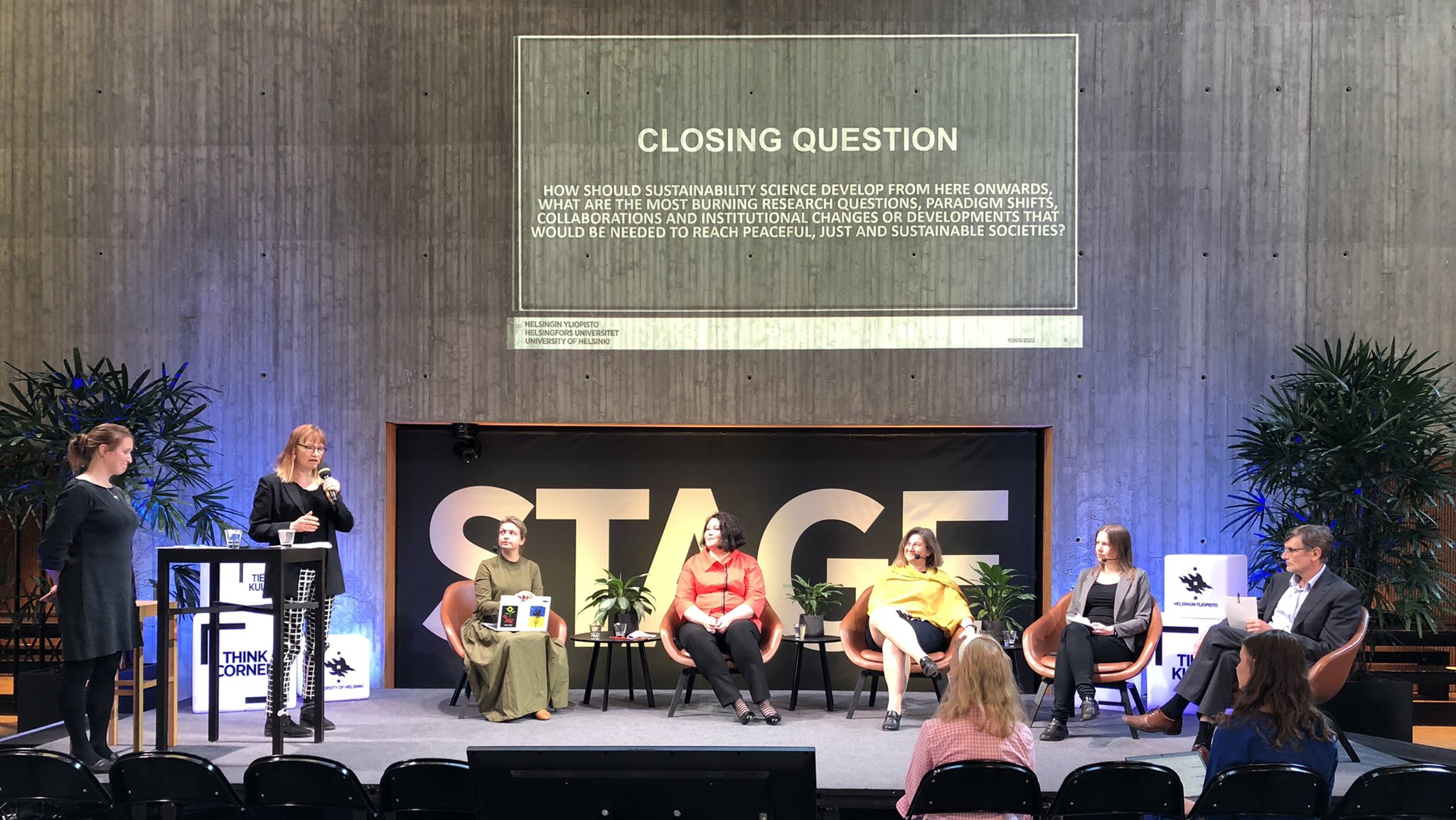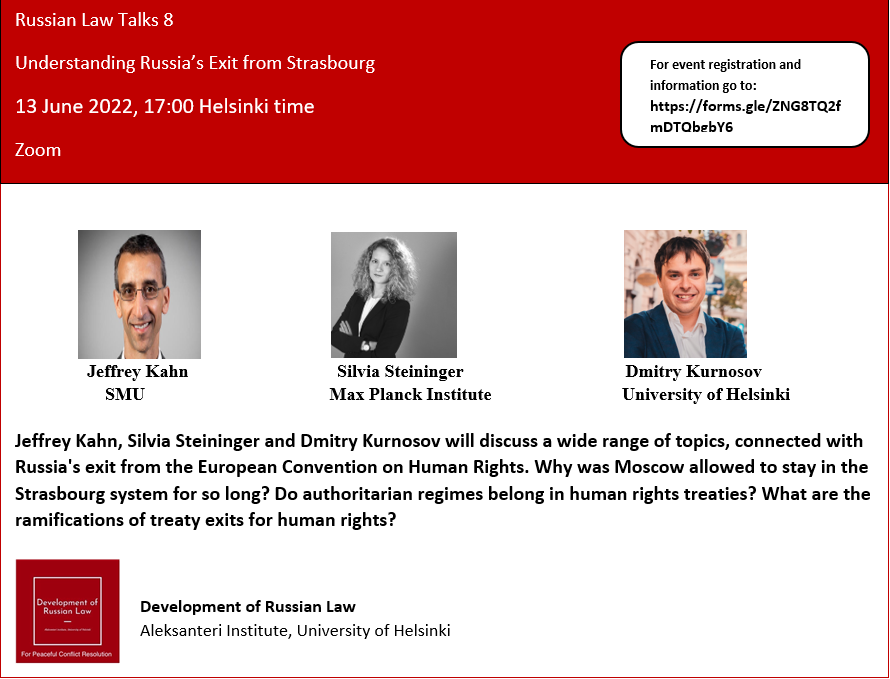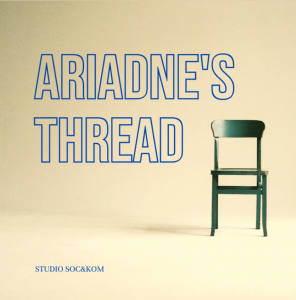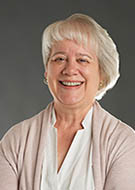by Jeffrey Kahn | Mar 9, 2022
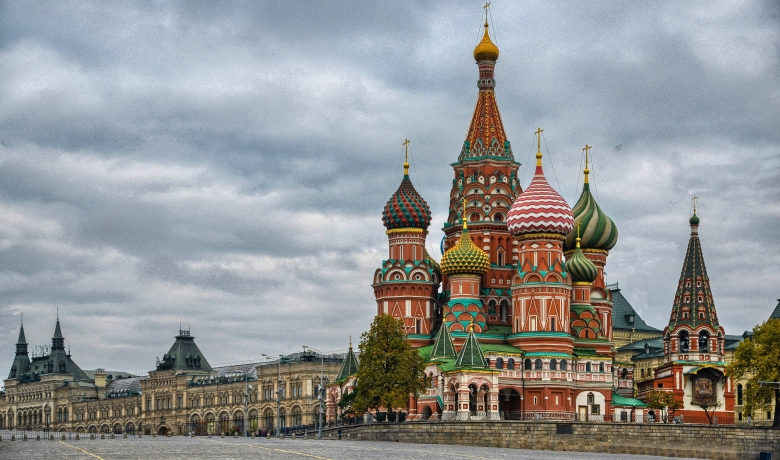
Recent Russian conduct on the world stage—and less metaphorically, on the territory of Ukraine—has been appalling. Violations of international law (such as acts of aggression and unlawful support for insurgents or mislabeled peacekeeping operations) followed assurances that no attack on its neighbor was planned or would occur.
Today one might be forgiven for concluding that Russia’s view of its international legal obligations mirrors the quip of former French President Jacques Chirac: “My promises only bind those who believe them.” At least Chirac appeared to speak in jest. In international law, pacta sunt servanda is a fundamental pillar.
This post introduces elements of consistency and change in Russia’s general approach to international law. It then focuses on the particular example of Russia’s deteriorating interest in its obligations in the Council of Europe and under the European Convention on Human Rights.
The root of the dilemma of Russian membership in international organizations—particularly those devoted to human rights—has always been apprehension that exclusion was worse than inclusion. No such concern can reasonably now remain.
Imperial and Soviet Pasts
Russia rightly boasts many positive contributions to international law. The 1868 St. Petersburg Declaration frames Sean Watts’s discussion in this series on Molotov cocktails. It should be remembered that both the 1899 and 1907 Hague Conferences were convened at the invitation of Tsar Nicholas II. Another is the Martens Clause (named after diplomat and international lawyer Fyodor Fyodorovich Martens) that saved the 1899 conference and pseudonymous convention; reappears in abbreviated form in the Geneva Conventions and Additional Protocols; and describes a fundamental aspect of customary international law in this field. The Martens Clause remains useful in this conflict; Air Commodore W. H. Boothby discussed it in this series regarding cluster munitions.
History also holds reminders of Russian irredentism. In late November 1939, the USSR invaded Finland, formerly a grand duchy of imperial Russia (which followed Soviet occupation of eastern Poland and preceded the annexation of Latvia, Lithuania, and Estonia). The Winter War lasted 104 days due to the resilience of vastly overmatched Finnish soldiers, but ultimately led to Finland’s defeat and loss of roughly 11% of its territory (which remains part of Russia).
The last meaningful, substantive act of the League of Nations was to expel the Soviet Union (a founding member) for this aggressive war. The USSR denunciation of this “absurd decision” sounds eerily familiar. The Soviet Union accused Western powers of hypocrisy, arguing that “Britain and France have forfeited both the moral and the formal right to talk about anybody’s ‘aggression.’” The USSR characterized invasion as defensive action necessary to the security of Leningrad and the newly recognized “People’s Government of the Democratic Republic of Finland” and asserted the intention to protect “the genuine will of the people of Finland” against the “bankrupt” “clique” of its “former rulers.”
From USSR to Russian Federation
The collapse of the Soviet Union in December 1991 marked a shift in thinking about the (geographically reduced) Russian Federation’s international law obligations. One shift required a new perspective on fourteen non-Russian regions that Soviet leaders (like imperial Russian rulers) had considered subordinate to Moscow. Now they were to be recognized as equal, rights-bearing sovereign States.
Loss of what Russia called the “near abroad” was aggravated by the reignition of frozen conflicts that policies to control non-Russian ethnic groups and the Soviets’ nominally federal governance system had managed with varying effectiveness. A highly centralized, one-party State had spent seventy-three years dividing, shifting, and sometimes forcibly deporting Russian and non-Russian populations within faux internal borders. Military, industrial, and other resources were scattered throughout the USSR without anticipating the need to divide the spoils.
Violence between Armenia and Azerbaijan in 1988, for example, predated the Soviet collapse. Other conflicts, such as the Russian imposition in 1992 of a “peacekeeping” military force between the former Soviet republics of Moldova and Ukraine following the creation of a “Pridnestrovian Moldavian Soviet Socialist Republic” (Transnistria), presage one modus operandi of the current crisis. The use of “peacekeeping” forces in South Ossetia and Abkhazia to provoke war with Georgia in 2008 provides another example.
Before the Soviet Union collapsed, but after Ukraine’s parliament declared its independence, Russian President Boris Yeltsin threatened Ukraine’s leadership that departure would open the question of the legitimacy of its borders, especially concerning Crimea and the Donbas. Concern over the Soviet nuclear arsenal, much of which was located in Ukraine, produced the 1994 Budapest Memorandum signed by Ukraine, Russia, the United Kingdom, and the United States. It provided, inter alia, that the parties “respect the independence and sovereignty and the existing borders of Ukraine.” Other legal arrangements demarcated control of Soviet army and naval installations, including the Black Sea Fleet at Sevastopol on the Crimean peninsula.
Post-Soviet Ambitions: Russia and Europe
Other, more conceptual, shifts led to profound changes in Russia’s international relations. The 1993 Russian Constitution moved away from a dualist view of international law to which the Soviet Union adhered to adopt a more monistic approach. Article 15(4) of the Constitution declares:
The universally-recognized norms of international law and international treaties and agreements of the Russian Federation shall be a component part of its legal system. If an international treaty or agreement of the Russian Federation fixes other rules than those envisaged by law, the rules of the international agreement shall be applied.
Russian law scholars debate the metes and bounds of this change, but it was change nonetheless. Importantly, it opened space for Russia to join the Council of Europe and accede to the European Convention on Human Rights. But the arc of that membership traces a trajectory of change in Russian views toward these treaty obligations.
In 1992, when Russia sought membership, it was desperate to join any organization that would accept it. The conclusion of legal experts and rapporteurs for the Council of Europe’s Parliamentary Assembly was that Russia did not meet the legal standards for admission. This was not positively challenged by Russia’s 1994 commencement of a brutal military campaign in Chechnya while its application was pending. But political pressure to expand the Council ultimately won the day with the argument that “integration is better than isolation; co-operation is better than confrontation.”
Better Outside or Better In?
Inclusion in the Council of Europe required ratification of the European Convention on Human Rights, which occurred in 1998. Much good came out of that international legal obligation in terms of domestic legal reforms largely accomplished during Vladimir Putin’s first presidential term.
But the requirements of membership have proved to be burdens that Russia eventually decided it would not continue to bear. Russia has 17,013 pending cases—more than any other Member State. In 2021, Russia had 232 violations adjudged against it—again a consistent “first-place” among 47 Member States. These violations contributed more than any other State to the bottleneck in the Strasbourg Court’s overwhelmed docket. Many violations are systemic, recurring failures or indifference to enforcement, bringing to mind the quip of the Russian imperial satirist Saltykov-Shchedrin that “the severity of the laws is compensated by the non-obligatory nature of their observance.”
Some violations concern not only the European Convention but resonate with other international conventions and customary norms. The Court recently found Russia responsible for the polonium poisoning of Alexander Litvinenko by its agents in London. Inter-State cases brought by Georgia and Ukraine—themselves Member States of the Council of Europe—raise numerous issues at the core of the law of armed conflict and international human rights law (not least of which is the stealth annexation of Crimea) through the lens of the European Convention.
As Russian violations of the Convention grew, Russia changed its view of its obligations. In 2015, a new Russian law subordinated judgments of the European Court of Human Rights to judgments of the Russian Constitutional Court. Upon a finding by the Russian court of a “discovered contradiction” with the Russian Constitution, compliance with Strasbourg’s judgment is forbidden.
Conclusion
Until recently, the Council of Europe has frequently criticized Russia, even briefly denied its representatives’ voting right, but been unwilling to cast Russia completely out. The hope has been as it was in the beginning: “integration is better than isolation; co-operation is better than confrontation.”
That hope appears even more doubtful. In the words of Alain Pellet, Russia’s counsel before the World Court until 23 February, “it has become impossible to represent in forums dedicated to the application of the law a country that so cynically despises it.”
***
Jeffrey Kahn is University Distinguished Professor of Law and Gerald J. Ford Research Fellow at Southern Methodist University.
Photo credit: Jorge Láscar via Flickr

